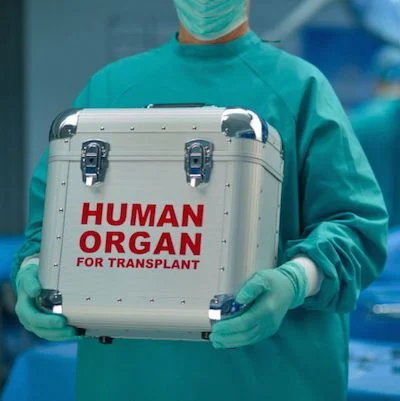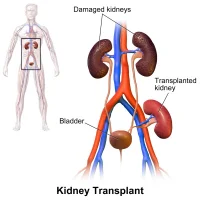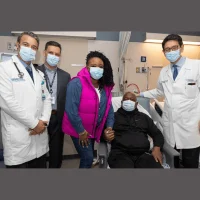New research published in the American Journal of Transplantation indicates that some kidneys affected by Acute Kidney Injury (AKI) may be safely used for transplantation. The revelation that such kidneys might be useful to patients awaiting organ transplantation can help to alleviate the current shortage of kidneys in the US.
The single-site study was led by Raymond Heilman, MD, Chair of the Division of Nephrology at the Mayo Clinic in Arizona. The results of 162 kidney transplants using kidneys from deceased donors with AKI were compared for graft survival, kidney function and rejection rates. The team found that, at one and three years post-transplant, outcomes did not differ between the AKI and non-AKI groups. The transplants occurred between June 2004 and October 2014.
“A decade ago we were very selective about using these AKI kidneys because of concern they wouldn’t function well, or the long-term outcomes would be inferior,” Dr. Heilman said. “Over time, however, especially in the past two years, we have found that such stringent criteria are not necessary.”
Dramatic Shortage of Available Organs
The severe shortage of available transplant organs is one factor driving physicians and surgeons to push for creative solutions. The consideration of AKI kidneys is one option for bridging the gap between the number of patients awaiting a transplant and the available donor pool. It is estimated that there are 100,000 patients wait-listed in the US, out of which only 12,000 to 13,000 receive a transplant in any given year.
“If this is adopted across the US, we estimate that between 300 and 600 additional kidneys per year would be transplanted,” said Dr. Heilman. As transplants increase, it should help to lower the number of patients who die while on the wait list. That number is currently increasing, Dr. Heilman said, with some patients waiting as many as eight years before receiving a transplant.
What Causes AKI?
Kidneys can experience acute injury when they stop working, typically due to extreme blood loss, severe infection, prolonged dehydration or medication usage. However, kidneys have “a remarkable ability to regenerate parts” that cease functioning, Dr. Heilman noted.
“With our data and evidence, we are confident that we are not short-changing the recipient by offering these AKI organs for their kidney transplant,” Dr. Heilman said. The AKI kidneys which might be considered for transplantation would be closely examined by nephrologists, pathologists and surgeons in advance to ensure that they are viable.
“Our data and experience in studying use of AKI kidneys should assure the transplant communities that this results in safe and excellent outcomes,” Dr. Heilman concluded.
Additional authors of the Mayo Clinic study are Maxwell Smith, MD; Sunil Kurian, PhD; Janna Huskey, MD; Ramesh Batra, MBBS; Harini Chakkera, MD; Nitin Katariya, MD; Hasan Khamash, MD; Adyr Moss, MD; Daniel Salomon, MD and Kunam Reddy, MBBS.
Source: Mayo Clinic
Image Credit: Google Images


![Tuberculosis Diagnostics: The Promise of [18F]FDT PET Imaging Tuberculosis Diagnostics: The Promise of [18F]FDT PET Imaging](https://res.cloudinary.com/healthmanagement-org/image/upload/c_thumb,f_auto,fl_lossy,h_184,q_90,w_500/v1721132076/cw/00127782_cw_image_wi_88cc5f34b1423cec414436d2748b40ce.webp)






